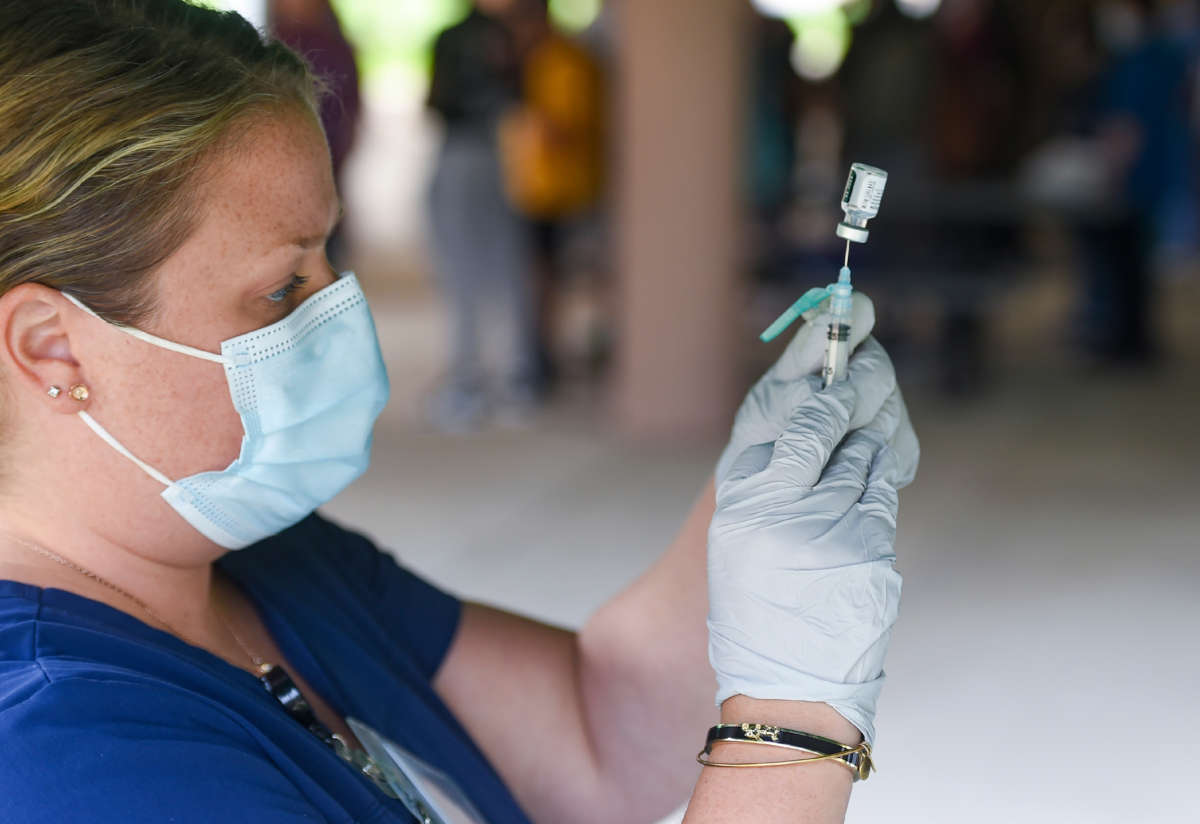Last month, a research study was published suggesting coronavirus vaccines were linked to heart inflammation, giving fuel to a number of anti-vaccination websites — but that study is now being retracted due to an enormous miscalculation by the study’s authors.
The University of Ottawa Heart Institute paper, which was published on September 16 before being peer-reviewed, erroneously claimed that 1 in 1,000 people who received an mRNA-based COVID-19 vaccine developed a heart inflammation condition called myocarditis.
The paper was subsequently shared by a number of anti-vaccination blogs and social media profiles, including a far-right U.K. website that suggested “over 3,000 children in the UK could suffer” from myocarditis because of the mRNA vaccines.
But the paper’s conclusion was based on the false assertion that researchers had observed 32,379 vaccine doses over a two-month period of time, during which around 32 instances of myocarditis were identified. However, the study had actually observed over 854,000 mRNA vaccinations in that time frame.
The error is a considerable one. Instead of 1 in 1,000 vaccinated individuals developing myocarditis, as the paper initially stated, the figure is closer to 1 in 26,688 — meaning that the authors vastly overstated the possibility of developing heart inflammation.
In reality, the risks that come with getting vaccinated for getting protection against COVID are far less significant than the risks of not getting vaccinated. In fact, a person is more likely to develop myocarditis after contracting COVID-19 than they are after getting vaccinated.
Vaccine hesitancy remains high in the U.S., where just 65 percent of Americans have received at least one dose of a vaccine since they were made publicly available earlier this year. According to recent numbers from the polling organization Morning Consult, 18 percent of Americans say they will never get a COVID vaccine, while another 10 percent say they’re still hesitant about doing so.
Misinformation about side effects could be driving those hesitancy numbers up. Thirty-five percent of adults who were “uncertain” about getting vaccinated against COVID cited worries about purported side effects, and 25 percent of adults who said they would never get vaccinated claimed that potential side effects were the reason why.
Join us in defending the truth before it’s too late
The future of independent journalism is uncertain, and the consequences of losing it are too grave to ignore. To ensure Truthout remains safe, strong, and free, we need to raise $46,000 in the next 7 days. Every dollar raised goes directly toward the costs of producing news you can trust.
Please give what you can — because by supporting us with a tax-deductible donation, you’re not just preserving a source of news, you’re helping to safeguard what’s left of our democracy.
